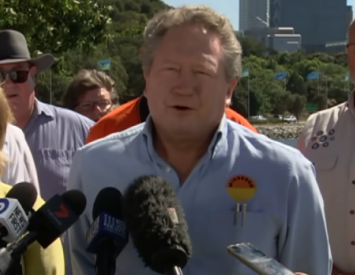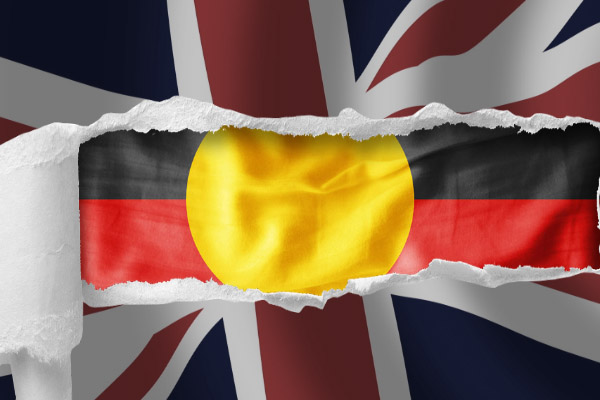There have been countless pieces written on the coronavirus' impact on the Australian higher education sector.
This coverage has included the financial reckoning of falling international enrolments as well as the impact on casual teachers and academics, the labour demanded of going digital and the erosion of communal life on deserted campuses.
What has been less remarked upon are university issues that intersect and interact with freedom of expression.
Universities have long been seen as bastions for the exchange of ideas, and, because of that, places of free expression. This includes one premise of enlightened liberalism, which enables scholars to operate within discursive conventions while pushing the boundaries of thought into new territories. This means responsibly sharing work through a system like peer review, but it also means stopping short of hate speech.
This is where the responsible freedom of expression is enmeshed with university disciplinary regimes and issues of funding, accessibility and diversity. Right now, though, the attack on universities – including the failure to support them economically – is also part of a wider attack on freedom of expression, or, to put it the other way, the attack on freedom of expression finds an outlet in the attack on universities.
Here it might be important to pause and consider freedom of expression in the academic context. This is where a prevalent view would make it essential to allow all ideas to be hosted on campus. This weaponising of the concept of freedom of expression has allowed right-wing commentators to support the activities of hate speech that target marginalised communities.
This leads to claims that, for example, an anti-trans speaker such as Quentin Van Meter should be allowed to talk at the University of Western Australia in 2018. That his talk was cancelled on an occupational health and safety (OHS) technicality does not excuse the assumption that he should be allowed to share ideas on campus that directly deny the lives of many students and staff.
In that way, freedom of expression needs defence from hateful, angry, and hurtful speech on the premise that power needs to be recognised and considered in light of individual identities and lived experience.
This is why freedom of expression is a responsibility and not only a right.
At present then, there are several concerns about freedom of expression at universities. There is the case of Kylie Moore-Gilbert, an early career researcher who remains imprisoned in Iran for conducting research.
Affiliated with the University of Melbourne, Kylie has spent close to two years in solitary confinement, having staged several hunger strikes, and being subject to a number of human rights violations. Caught though she is in complex geopolitical machinations, it does not change the fact that this is an issue for the academic community.
Then there is the question of support for arts and humanities faculties with suggestions that the University of Sydney may cut two-thirds of classes, and the failure to replace the Chair of Australian Literature at the same institution, to say nothing of the ongoing ructions about the Ramsay Centre for Western Civilisation.
This points to a denial of support, at the very least, if not a co-ordinated emaciation of diversity in potential education. That people are unable to access different ideas means that the University is failing to create a place of tolerance, equity, justice, healing and access, all of which matter to freedom of expression.
Finally, and perhaps of most concern, there is the case of Drew Pavlou. The University of Queensland undergraduate student has been suspended for two years following his role speaking out against Chinese authoritarianism. This includes support for Hong Kong students and shining a light on the university position of a diplomat, Xu Jie. Pavlou’s activism has mainly been of a satirical character.
That his liberty to express his own views in his own country have been curtailed suggests that he has upset powerful people over and above normal consideration.
All of these issues are taking place at our best universities and point to central concerns of power, privilege, economics, as they manifest in higher education in Australia today. That they all participate in a wider frame of reference, where fourteen-year-olds can be detained, where privacy data is sold to multinational corporations, where Indigenous languages are denied to prisoners.
What this suggests is that one of our essential rights is under attack and there are no safe havens left. This is part of a culture war and a war on culture, which is leading us towards a more authoritarian relationship with government. The response has to include funding for universities in a way that supports marginalised ideas from marginalised communities; the safeguarding of rights of protest for students and academics; and the liberation of prisoners like Kylie Moore-Gilbert.
Perhaps more importantly, it must also include a role for citizens in encouraging the conditions in which universities are able to play their vital role in who we are. We need them now more than ever just as we need responsible freedom of expression to define what matters.
Dr Robert Wood is chair of PEN Perth. A Malayali with East Indian Ocean connections, he lives on Noongar Country in Western Australia. The author of four books, Robert has held fellowships at the University of Pennsylvania and Columbia University.
 This work is licensed under a Creative Commons Attribution-NonCommercial-NoDerivs 3.0 Australia License
This work is licensed under a Creative Commons Attribution-NonCommercial-NoDerivs 3.0 Australia License
Support independent journalism Subscribe to IA.












